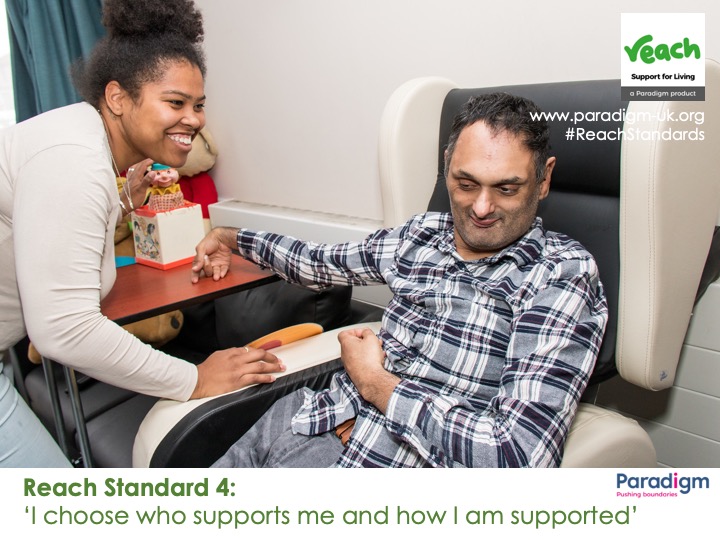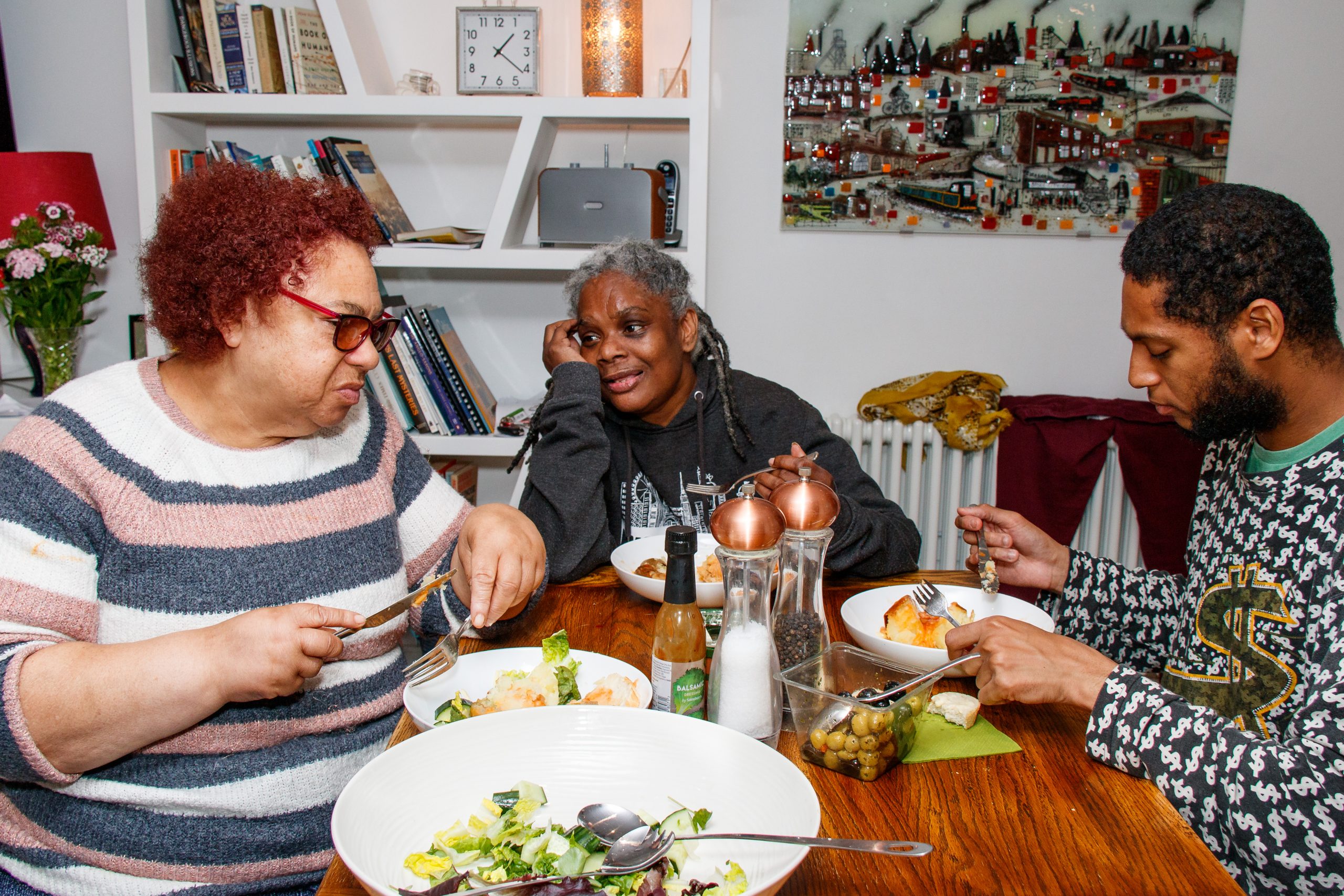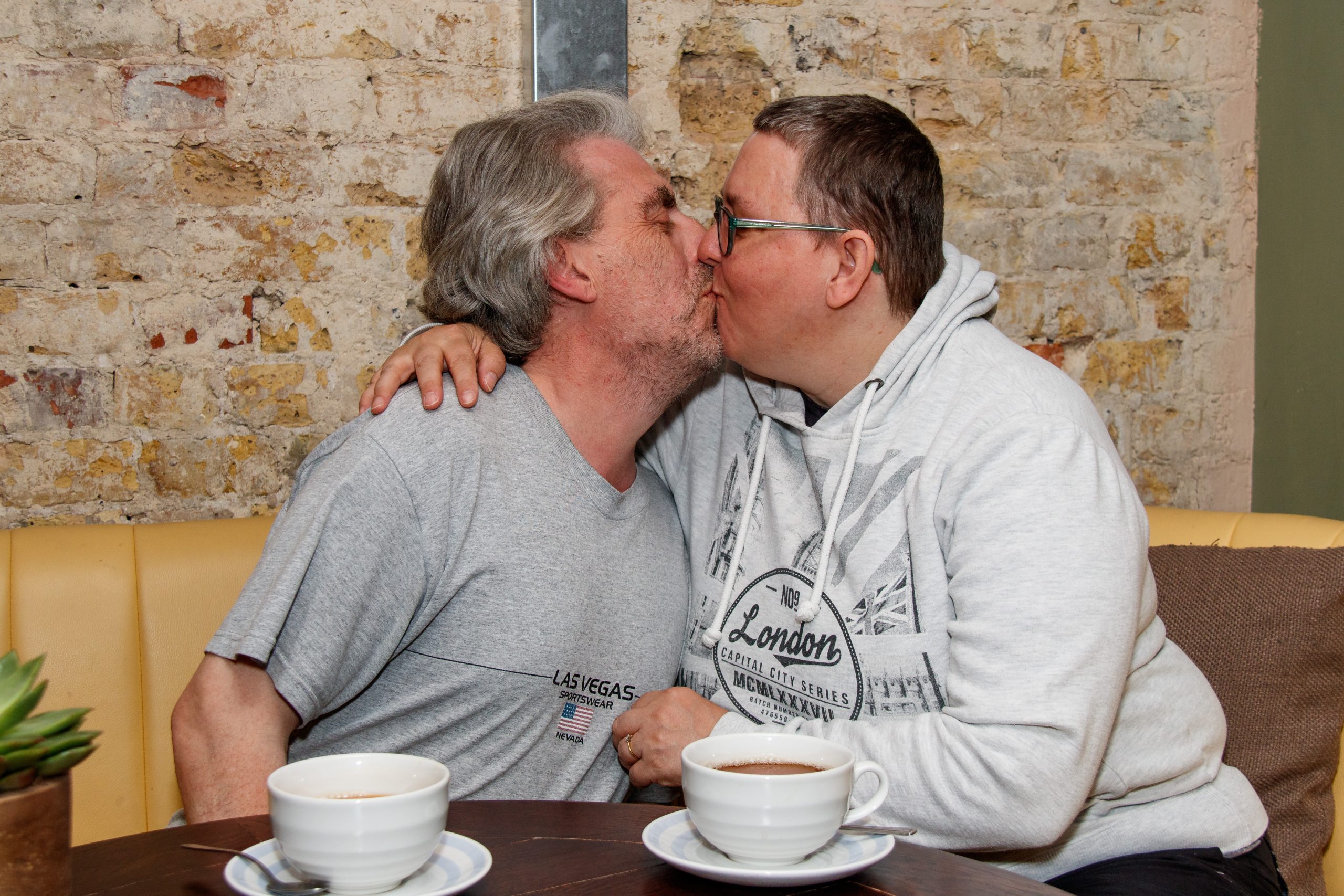We must collaborate to ensure people’s rights are maintained, including those regarding boundaries around the body and the home. Sally Warren and Jo Giles explain how using a
practical guide to the Reach standards for supported living can help you do this
The fundamental principles of supported living are set out in the Reach standards. These voluntary standards were developed by supported living development and training body
Paradigm and are recommended by the Care Quality Commission.
Paradigm has issued a practical guide to these standards, at a time where many are questioning whether supported living works and whether it is at risk of becoming a one-size-fits-all model. In addition, the need to defend the human rights of people with a learning disability and/or autism is increasingly urgent.
The Reach practical guide is designed to encourage all people to stop, reflect and do differently, using the standards. It is described by Dr Sam Smith, the founder of support organisation C-Change Scotland, as “a powerful and much-needed combination of simplicity and raised aspiration”.
For us, there is no better way to support people to reflect and do differently than by meeting them face to face. This always works best when people with a learning disability and/or autism, family membe rs and a range of supporters come together.
rs and a range of supporters come together.
To this end, we facilitate Reach standards workshops with people from all over the country, where we encourage them, in the words of John O’Brien, a thinker and writer on learning disability, to: see and believe in people’s capacity to live a good, ordinary life; recognise the integrity gaps and design better ways; and risk trying better ways and reflecting on what happens.
During these events, which are run with a colleague with a learning disability and/ or autism or family member, some common emotions and reactions arise. All our workshops begin with a human rights and freedoms exercise. It is a powerful way to get people to connect hearts and minds.
We ask people to think about their own lives and the everyday rights they enjoy. One by one, these are prioritised by participants, then (with the magic powers of facilitation) we start to remove some of these rights.
As we take away each right, the energy in the room starts to change. “I didn’t realise how much I take for granted,” is the most common comment.
People become passionate; they have a fire in their belly and then – whoosh! – the anger, vulnerability and powerlessness are palpable. People become frustrated. Some withdraw, some even become fiery and some become a little aggressive in their challenge to what is happening.
The rights people typically fight hard to keep include “I can decide who comes into my home”, “I can decide who sees me naked”, “I can refuse medical treatment” and “I can choose who I live with”.
At this point, we ask participants if people with a learning disability and /or autism generally enjoy the same choices and rights. They start to look uncomfortable. “Can people choose who comes into their home?”
“Well… no. Staff must be there and are often not chosen by the person.”
“Can people choose who they live with?”
“Well, no. Sometimes they can but usually someone is referred. They – and the other people living in the house – do not usually have the final say.”
Article 19 of the United Nations Convention of the Rights of Persons with Disabilities states clearly that people with disabilities have the same rights as others, including the right to choose where they live and who with, and to receive support so they can take part in the community.
It is at this point of the workshop that participants describe feeling powerless in a big system.
What can they do? This lack of control is because of money, time, commissioners, support workers, families, social workers and so on. We can see people having an internal debate as they think: “I believe this… but I do that… why?”
The energy in the room drops and we can feel people’s despondent paralysis. People are at risk of losing that fire in their belly right there and then. We understand this reaction. Social care is full of systems that are often too heavy with rules. Cultures can undermine natural ways of supporting someone to live a good, ordinary life. When people feel paralysis and powerlessness, there is a direct impact on the quality of support and possibility.
In our Reach standards workshops, we encourage participants to hold tight to thinking about people’s human rights and work in a way that carries these in our hearts, minds and vision.
We encourage people to keep that fire in their belly aflame and have a whole range of conversations at work – including ones that identify when things are not OK and question why things do not feel right. We encourage conversations and thinking where people try to find solutions or at least little nudges in the right direction.
Don’t pretend things are OK
This involves people agreeing that we should not pretend that all is OK if it is not. Thinking “this is the best we can do” is the slippery slope towards collusion.
Some issues can seem insurmountable in the short term but, when there is space for exploration, questioning and imagination, people always come up with actions. One group of support workers in a Reach standards workshop spoke of a man being referred to a shared home where two people already lived. The two people (who were non-verbal) had communicated very clearly that they did not want him to move in. The support workers had been told the man had to move in because the empty room was costing money. It did not feel right to them. The team felt powerless. In the workshop, they became enthused. They decided to write to their manager detailing the views of the people they supported and their concerns, to be passed onto the commissioner making the referral.
This realisation that they as support workers could do something to advocate for the people they cared about – giving them, in turn, a feeling of self-value, that they had worked with integrity and they could make a difference – kept the fire alive.
We see people’s tiredness, sense of powerlessness and frustration. That is why we also set up the Gr8 Support Movement (https://tinyurl.com/wpkhgks) to connect and value supporters across the country. W e also see the effect and the power when people with a learning disability and/ or autism, families, supporters, managers and commissioners come together to identify problems and find solutions together, no matter how small those steps they make might be. We should never underestimate the value of conversations, collaboration and commitment.
e also see the effect and the power when people with a learning disability and/ or autism, families, supporters, managers and commissioners come together to identify problems and find solutions together, no matter how small those steps they make might be. We should never underestimate the value of conversations, collaboration and commitment.
Together, we must create cultures in our workspaces where we encourage and grow curiosity, conversations, questioning and the exploration of what is possible because many heads together are often more creative and powerful than one. We need to value those around us who have that fire in the belly – who are brave and stick their heads above the parapet to fight and ask what is right, and do not find excuses to do nothing.
We launched our Reach practical guide and the online toolkit because we are passionate about the power of the conversations of discovery, upholding human rights and people living good, ordinary lives. We are equally passionate about the roles of supporters in doing this.
We have heard some people say that the Reach Standards are “too” aspirational. How can this be if they embrace and keep human rights at the forefront of our minds? If we do not want to lose our own human rights, why is it acceptable for this to happen to people with a learning disability and/or autism? If what is right cannot be fully achieved at a given moment, discuss the obstacles, agree what steps could reduce them and keep them on the radar so they can be addressed fully at the first opportunity. As a recent report says, we need to “understand what the barriers are [to implementing the Reach Standards] and develop strategies to overcome the obstacles, not disregard them” (National Commissioning Board Wales, 2019). n ● A Practical Guide to The Reach Standards: https://tinyurl.com/sm7dref ● To find out more about The REACH Standards training, contact 020 8870 8643 or Gr8SUpport@paradigm-uk.org.
Sally Warren is managing director of Paradigm; Jo Giles is a Paradigm associate
References and further reading
National Commissioning Board Wales (2019) Commissioning Accommodation and Support for a Good Life for People with a Learning Disability Warren S, Cooper O, Schwabenland C (2016) Playing Your Part in Creating Positive Cultures. London: Paradigm O’Brien J (2014) Healing Integrity Gaps. London: Paradigm
